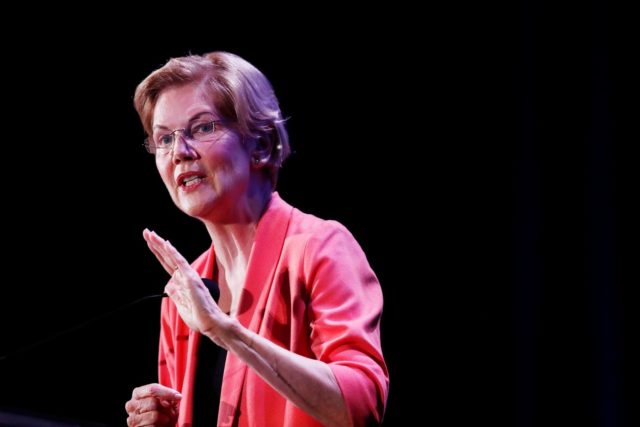The letter, which emphasized that it was nonpartisan and not to be interpreted as an endorsement of anyone in 2020, noted that several presidential candidates, including Sen. Elizabeth Warren, D-Mass., Pete Buttigieg and Beto O’Rourke, have already signaled interest in addressing the nation’s staggering wealth inequality through taxation.
Warren’s proposal, the letter writers said, would implement a tax of 2 cents on the dollar on assets over $50 million and an additional 1 cent tax on every dollar of assets over $1 billion. It would generate nearly $3 trillion in tax revenue over 10 years, they said. Recent polls show there’s a great appetite for increasing taxes on the wealthy.
According to a February Politico-Morning Consult poll, 61% of the voters surveyed say they support a wealth tax such as the one backed by the co-signatories, with 20% saying they oppose it and 19% saying they weren’t sure. When the results are broken down by political affiliation, 50% of the Republican voters support a wealth tax, compared with nearly three-quarters of Democrats.
During the first year of his administration, President Donald Trump signed a sweeping overhaul of the U.S. tax code. While Republicans cast it as a boon to the middle class, lower- and middle-income taxpayers saw only moderate tax relief while the highest earners received a substantial windfall. According to the nonpartisan Tax Policy Center, the tax law will give the richest 1% of Americans – those earning more than $732,800 a year – an average tax break on personal income of about $33,000. Those on the opposite end of the spectrum – those earning less than $25,000 annually – saw an average personal income tax break of $40.
The richest 0.1% of Americans now command more wealth than the bottom 80%, according to a recent working paper on wealth inequality by Gabriel Zucman, an economist at the University of California at Berkeley. Nearly 20% of the nation’s wealth belongs to the country’s richest people.
Among the people who signed the open letter are activists and philanthropists known for their work on social and political issues. Earlier this year, Disney criticized The Walt Disney Co. in a commnt in The Washington Post, calling attention to chief executive Bob Iger’s compensation last year of $65 million, which amounts to more than 1,400 times the median pay of a Disney worker.The letter is also signed by Louise Bowditch, Robert Bowditch, Sean Eldridge, Stephen English, Agnes Gund, Catherine Gund, Nick Hanauer, Arnold Hiatt, Molly Munger, Justin Rosenstein, Stephen Silberstein, Ian Simmons, Liesel Pritzker Simmons, Alexander Soros and Anonymous.








